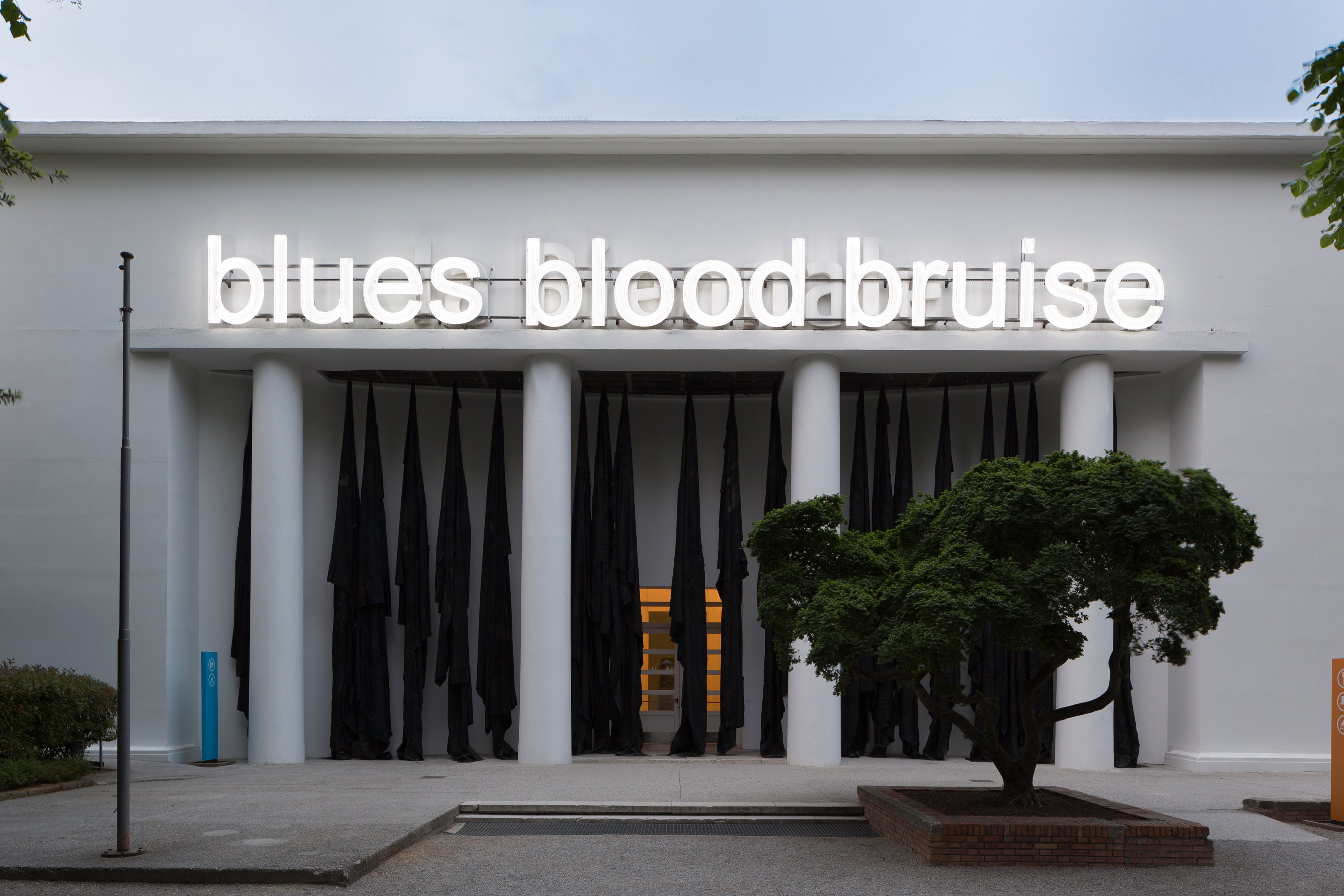
Prior to his death in March of 2019, legendary curator Okwui Enwezor was in the process of completing an exhibition centered around the intersection of “black grief” and “white nationalism” in art, timed to the 2020 presidential election.
Next year, a group of curators will step in to bring Enwezor’s vision to life. “Grief and Grievance: Art and Mourning in America,” which was co-organized by MCA Chicago senior curator Naomi Beckwith, New Museum artistic director Massimiliano Gioni, artist Glenn Ligon, and independent curator Mark Nash based on Enwezor’s concept, will go on view at the New Museum on January 27.
The announcement comes just one day after the New York Times published a scorched-earth exposé about the museum’s working conditions, in which current and former employees compared it to a “sweatshop” and a “fiefdom.” (Some on Twitter pointed out the irony of the show’s title, “Grief and Grievance,” in light of the coverage, and the fact that the museum gave the scoop on the exhibition to the Washington Post in an apparent snub of the Times.)
Arthur Jafa, Love Is The Message, The Message Is Death (2016). Courtesy of the artist and Gladstone Gallery, New York and Brussels.
The show will present work by 37 contemporary artists, many of whom are among the most important of their respective generations. The lineup includes Arthur Jafa (whose video Love Is the Message, the Message Is Death will be a centerpiece of the show), Kerry James Marshall, LaToya Ruby Frazier, Nari Ward, Deana Lawson, Kara Walker, and Jack Whitten. The works will fill the museum’s lobby and its three exhibition spaces. Collectively, the art examines and confronts what writer Saidiya Hartman calls in the show’s catalogue “the afterlife of slavery.”
In a statement, the museum’s director Lisa Phillips calls the show a “tribute to Okwui Enwezor’s courage, relentless focus, and fierce intelligence as a giant in our field and one of the most important curators of his generation.”
“His presence remains vivid,” the director goes on, “as does his legacy to transform the history of art and exhibition-making… On the eve of a presidential election where the stakes have never been higher, Okwui’s vision and the voices of the artists selected for this exhibition could not be more relevant.”
Kerry James Marshall, Untitled (policeman) (2015). © Kerry James Marshall. Courtesy the artist and Jack Shainman Gallery, New York.
The Nigerian-born Enwezor was known for ambitious, complex, generation-spanning exhibitions that teased out big ideas in cultural production, such as “Postwar: Art Between the Pacific and the Atlantic, 1945–65” at the Haus der Kunst in 2017. This marks his first exhibition tackling America as a subject.
The show took root in the fall of 2018, evolving from a series of lectures about Black mourning and white nationalism that Enwezor had planned for Harvard University. When he died in March, he left lists of potential artworks, artists, catalogue contributors, and a working thesis.
Shortly thereafter, the New Museum convened what it calls an “advisory team” to realize the Enwezor’s idea. Ligon, who Enwezor himself had invited to advise in a curatorial capacity, was joined by Nash, Beckwith, and Gioni, all of whom had collaborated the late curator before.
The exhibition was roughly 85 percent complete upon Enwezor’s death, New Museum artistic director Massimiliano Gioni told the Washington Post. “We tried not to stray from the blueprint Okwui gave us. Where that was not possible, we tried to be like a restorer or conservator where you fill in the gaps.”